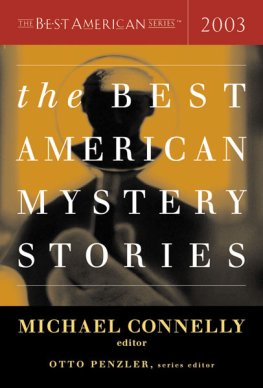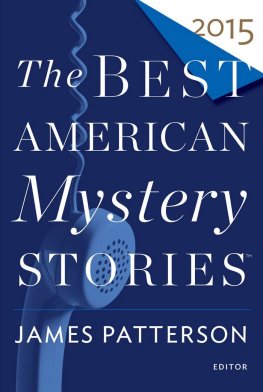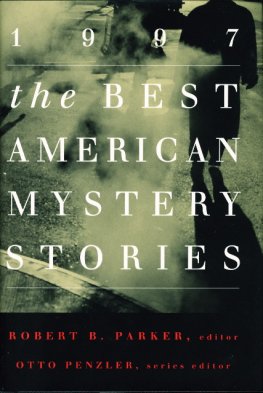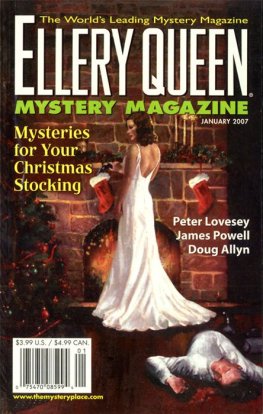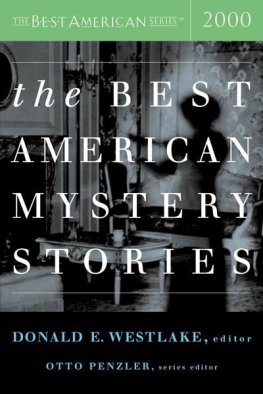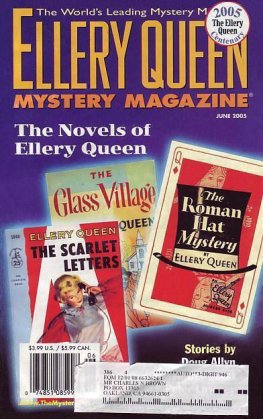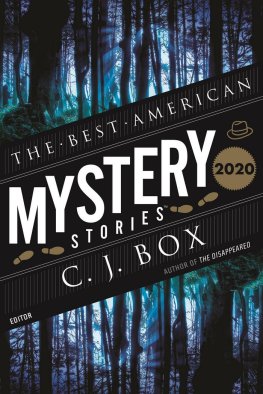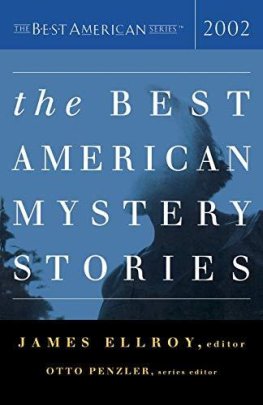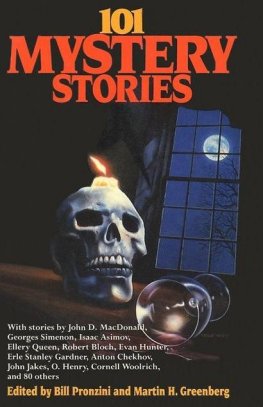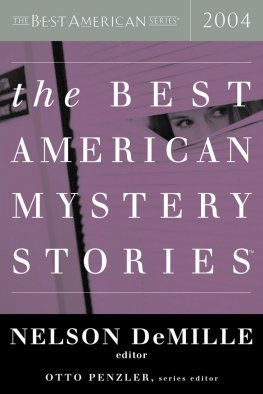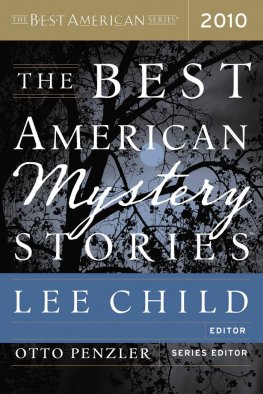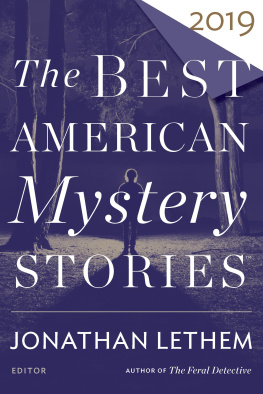The Best American Mystery Stories 2003
(Edited and with an Introduction by Michael Connelly
Otto Penzler, Series Editor)
Each volume of this series of Best American Mystery Stories has certain peculiarities and certain similarities as it is being compiled. Some of these similarities will be immediately evident to those who have read several editions.
First, and perhaps most important, is that one will be struck by the extraordinarily high quality of the fiction between the covers. Whether by established authors, lesser-known writers, or first-timers, the excellence of the prose cannot be denied. It is not surprising, then, to realize that many of the stories selected for these books were first published in literary periodicals, which sometimes have a very small circulation. It is these little magazines that search for experimental work, often accepting material that would be unlikely to find a wide mainstream audience. Frankly, some of it is awful. Experiments that, if successful, should never have been attempted, or, more likely, were poorly conceived and had no chance of being successful. But sometimes they work, and they are wonderful. Most are not mysteries in the way we usually think of them, but some slip into the genre because of my very liberal definition of mystery (any work in which a crime, or the threat of a crime, is central to the theme or plot). Most volumes of BAMS have one or two of these.
Another similarity of the books in this series is the apparent ubiquity of Joyce Carol Oates, who remains one of the brightest colors in the rainbow of American letters. She has appeared in six of the seven annual volumes of BAMS. Nobody makes it into these books based on their fame or popularity, and she is no different. It is about the work, and she simply will not be denied. The Skull made it into this book, but another of her stories, Angel of Wrath, was nominated for an Edgar Allan Poe Award by the Mystery Writers of America. It could have gone either way.
Yet another similarity from book to book is the range of subgenres of the very broad category of mystery. Styles have ranged from very hard-boiled to quite cozy, but an even greater range has been from the very structured detective story to capers to character studies to espionage fiction. There have been stories of policemen and stories of criminals; they have been set right next door and also in the farthest corners of the globe. There have been happy endings and those that almost force a sob. It seems reasonable to say, then, that one similarity is that every book is so different from every other one.
There are similarities that the reader can never know, however, because they have to do with the actual compilation of each volume and the personal contact I have with authors. As you might expect, most are delighted to have been selected for the honor of being included in these wonderful books. Two didnt want to be included. (E. L. Doctorow didnt say why, and his excellent story found its way into Best American Short Stories last year; T. Coraghessan Boyle said he wasnt a mystery writer and didnt want to be identified as one, though he had written a splendid crime story.) My favorite response, however (and its happened every year), is from the authors who are excited to be included but who never realized they had written mysteries.
No, no, I explain, a mystery is not merely a detective story, which is just one subgenre of this rich and diverse literary form. Then I give them my definition and they say, well, then, they guess theyve written a mystery. Each of those stories has dramatically enhanced the volumes in which they appeared, and if you have previous volumes in this series, it might be an interesting exercise to figure out which are those stories. (Hint: all were published initially in literary journals.)
And that reminds me. Back in the Age of Enlightenment, when I first got into the world of publishing, publishers kept books in print practically forever. Nowadays, it is very common for publishers to let a hardcover edition go out of print within a year of publication. Houghton Mifflin deserves a little recognition and a lot of credit for keeping virtually every book in this series in print. The accountants would probably tell them it is not an economically wise practice, but they do it anyway, which is definitely cool.
Speaking of cool, Michael Connelly did a terrific job as guest editor, which should be no surprise except that until a few years ago he had never even written a short story, and now he has developed a great affection for this difficult but rewarding form.
Also, as I can never fail to do, a sincere word of thanks and admiration to Michele Slung, who did so much of the preliminary reading for this and every volume. Her skilled speed, intelligence, and taste make it possible to produce these projects on time. Its not just reading the 1,000-1,200 mystery stories but going through many, many hundreds of magazines and finding which of the fiction falls into the mystery category. Title alone will not do it, and if you dont believe me, check the table of contents for Thug: Signification and the (De) Construction of Self and decide if it leaps out at you as a crime story. Ditto Aardvark to Aztec, Home Sweet Home, and That One Autumn.
The process is the same every year because it seems to work pretty well. After Ive selected the top fifty stories of the year (in my opinion, anyway, which is all anyone can offer), the guest editor reads them all and picks twenty favorites. The others are listed in the back of the book as Other Distinguished Mystery Stories of [the year].
Although we read every consumer periodical and hundreds of little magazines, as well as all anthologies or short story collections with original material and electronic publishing sites that offer fiction, we recognize that we might miss something worthy. Therefore, if you are an author, editor, publisher, or someone who cares about one, you are encouraged to submit stories. The original publication or a tearsheet is fine, or a hard copy if it appeared electronically. The date of the initial publication is vital, as well as a contact address. No unpublished material will be considered, for what should be obvious reasons. Please understand that no submissions can be returned. If you require an acknowledgment of receipt, please enclose a self-addressed postcard.
To be eligible, a story must have been written by an American or a Canadian and first published in an American or Canadian periodical or book in the calendar year 2003. The earlier in the year I receive material, the more warmly I regard it. Stories received after January 1, 2004, will not be considered.
Please send submissions to Otto Penzler, The Mysterious Bookshop, 129 West 56th Street, New York, NY 10019. Many thanks.
O.P.
I drive a two-seater. Its a drop-top sports car built low to the ground for better control and handling. All right, its an automatic with a pushbutton, electronic top. But thats not the point. The point is that when the tops down and Im sailing through the curves along the bay, the wind cutting in behind my shades, I cant think of a better car to be in. Sure, its so small, I cant fit more than one suitcase into it. But again, thats not the point. The point is performance and beauty. In a word, velocity.
The point is this is why I love the short story. Velocity. Room for one suitcase only. The short story deals with issues and themes large and small. But it does it succinctly and quickly. The short story is a car for the short track. Put the top down and power into the curves. If youre going a long distance, get yourself a novel. Take the freeway and get yourself an SUV.
I drove seven SUVs before I ever tried a sports car. I found the difference amazing. You have to dig in to write a novel. You have to cover all the angles. You need a trunk big enough to carry a lot of baggage and extra supplies. Conversely, the short story is lean and mean and built low to the ground. Its ideas burn on high-test. They are spare and to the point.

